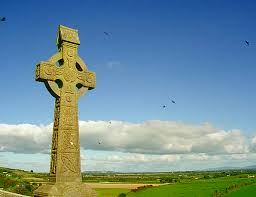
Resilience, and the Search for God
When I was a kid, starting when I was about 8 or 9 years old, I believe, my friends and I used to be gone from our houses for hours without our parents knowing exactly where we were.
In the summer, we spent whole mornings or afternoons in a huge nearby park, which had hills and woods with a creek running through it. We would, of course, make sure we were home for meals.
The neighborhood was filled with kids, and besides playing sports and games together, we had plenty of disagreements and even some fights. But we almost always worked things out without our parents’ help.
These are different times, not necessarily worse times. But nowadays, this kind of independence by children could bring charges of parental neglect. Back then, I think it gave us a good start in life, in resolving our own problems, overcoming obstacles, learning the give and take you need to live with other people.
How Resilient Are We?
I recently read an article in the magazine “Living City,” a publication of Focolare – a worldwide movement, founded by an Italian, Catholic laywoman, dedicated to religious unity. The article is entitled, “How Resilient Are We?” It’s written by the publication’s editor, Susanne Janssen.
Among its questions: “What can adults do to teach children resilience?” The article defines resilience as “the ability to manage and bounce back from the bumps encountered in everyday life.”
Janssen sees a dramatic decline over the past few decades in children’s opportunities to play, explore and pursue their own interests away from adults.
“They have not been given the opportunity to get into trouble and find their own way out of it, to try something new and not be good at it, to experience failure and realize they can survive it, to be called names by others and learn how to respond without adult intervention.”
I believe that’s generally true, but to be honest, I don’t know how I would feel about it if I were a parent of small children today. I’ve often tried to decide whether the risks of growing up in today’s world are exaggerated. Is the world really that dangerous compared to the last decade or the ones before it? I simply don’t know, but I know that’s the perception and I understand why most parents want to come down on the side of safety.
Resilience, however, is an extremely valuable asset for people of all ages. In fact, it probably grows in importance as we age. Life certainly isn’t easy in our teenage years, and young adults are burdened with the sometimes overwhelming tasks of starting or raising a family, establishing a career and paying bills.
The problems of those ages are replaced in middle age and old age by others, often those of losses due to poor health or deaths of loved ones. At my age, you face loss of close family members, loss of physical strength, and the “pain of the week.” It takes a lot of resilience to keep on an even keel.
One of author Janssen’s suggestions is to “teach your children to set realistic, achievable goals.” But one of things for which I’m most grateful about my own childhood is that there was no talk of “goals” at all. You simply wanted to have fun as a kid, grow up, and following your parents’ example, do something worthwhile and be a good person who respected others and contributed to society.
I suppose those could be considered “goals,” but I’m glad I wasn’t burdened by parents with high expectations who pressure their children to “achieve goals.” If we had goals, they were implicit in what we learned from our parents, family, and life.
Fear and Lack of Persistence
It occurs to me that the search for God requires a lot of resilience – the ability to overcome obstacles. Among the principal obstacles are fear – that the search itself isn’t worthwhile, that you can’t maintain honesty and faith at the same time, that you can’t do it in the face of others’ indifference or hostility – and lack of persistence.
Resilience implies a certain mental toughness, one that was present in all great religious leaders. In the Judeo-Christian tradition, that toughness is evident from Abraham to Jesus.
It also implies courage – having the self-confidence to know you’re able to move on from failure and overcome obstacles. And above all, perhaps, it implies patience, a willingness to “wait for God.”





